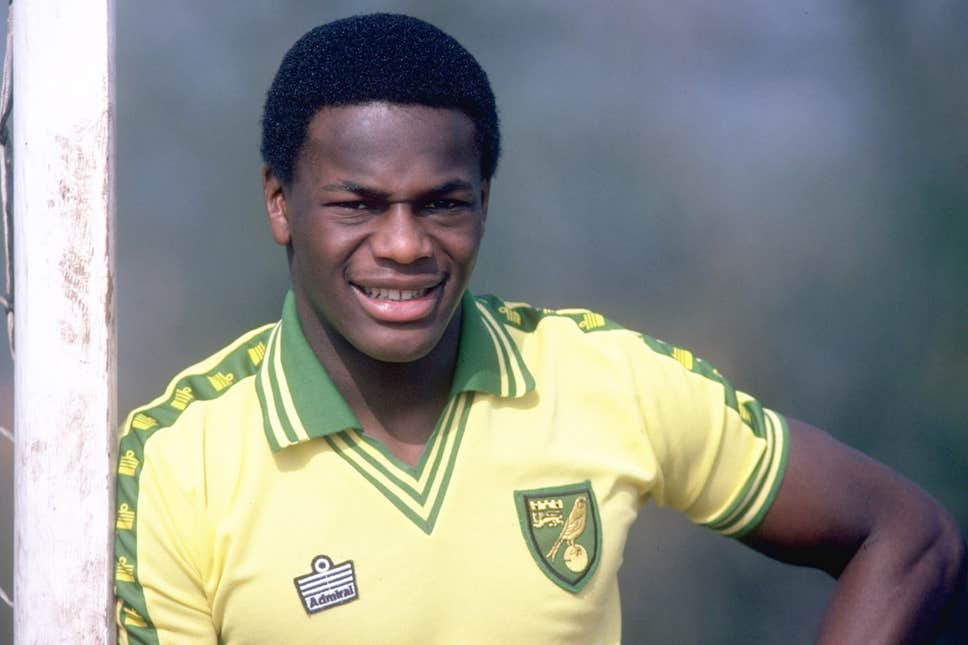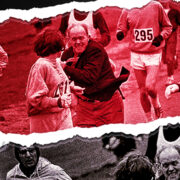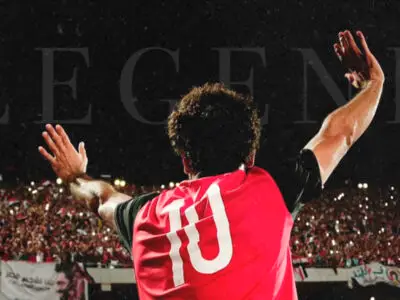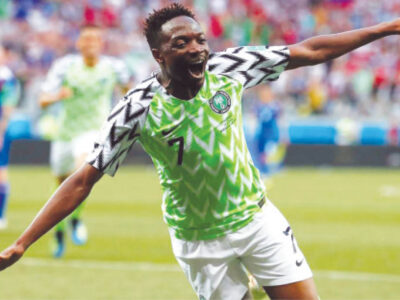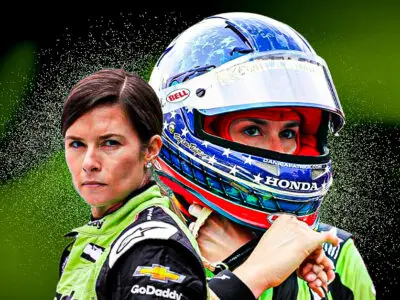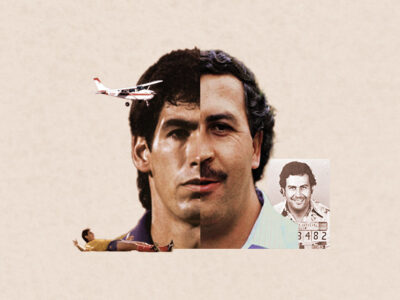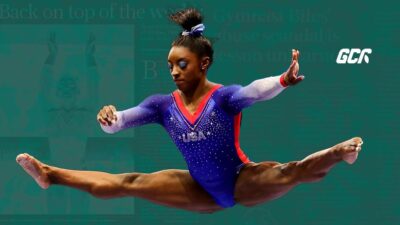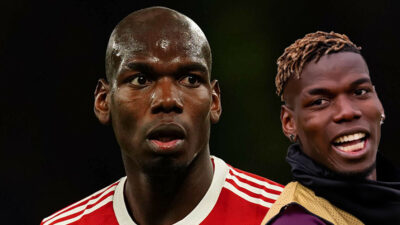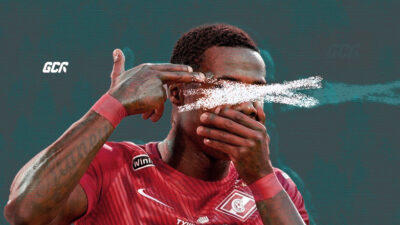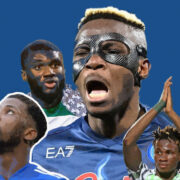The headline of Justin Fashanu’s death shocked the entire football world. From close-minded bigots to open-minded liberals, the reaction was that of horror. That was before the agenda started rolling in.
But Justin Fashanu’s story transcends the realm of the sport and delves into the complexities of the human experience. It held a mirror in front of the football world, showing us a nasty reflection we’ve failed to acknowledge even in 2023.
From challenging stereotypes to enjoying fame while facing the darkest demons, this retelling of Fashanu’s story will show you the power of authenticity and the need for tolerance and inclusion in sports—specifically association football.
Who is Justin Fashanu?
Born on February 19, 1961, in Hackney, an inner city in London, Fashanu’s journey carried immense significance both on and off the pitch.
Hailing from a humble background, Fashanu was the son of a Nigerian immigrant father and a British Guyanese mother. His father, Patrick Fashanu, a barrister, had come to Britain seeking a better life but left Justin and his mother while the boy was still an infant.
Raised in an orphanage alongside his brother, John, after their mother decided to give him up for adoption, Justin Fashanu’s formative years were not the fanciest. Fortunately, Alf and Betty Jackson, a kind couple from Shropham, Norfolk, adopted the promising children shortly after Justin turned six and John was five.
Fashanu’s formative years were marked by his love for the beautiful game and a desire to leave an indelible mark on it. Justin grew into a promising teenage boxer. He had twice been a British Amateur Junior Heavyweight finalist.
Then a Norwich City football scout persuaded Justin Fashanu to have a future in the sport. After being accepted as an apprentice, he spent summers developing his craft with the experts.
This seemed like the birth of a star!
But, as with every hero’s story, things would never be that simple. Justin Fashanu had to overcome one obstacle — his brother.
Living in the Shadow of His Brother
In the realm of football, sibling rivalries are not uncommon. From the Neville brothers to the De Boer twins and the Toure brothers of the English Premier League, the beautiful game has witnessed the unique dynamics that arise when brothers share the same passion.
This story follows a similar pattern.
As Justin Fashanu embarked on his footballing odyssey, he was cast into the shadows of a towering figure in his life — his younger brother, John Fashanu. The elder Fashanu had already made a name for himself on the football stage, carving out a reputation as a formidable striker with a physicality that demanded attention.
Remember the Crazy Gang? The Wimbledon team that won the 1988 FA Cup in a thrilling final against Liverpool? Yes, that one. John Fashanu was an enforcer in that team.
By contrast, Justin Fashanu possessed a different playing style, characterized by finesse, agility, and elegance that set him apart. Yet, in a world where brawn was often revered over artistry, Justin often was overshadowed by his brother’s imposing presence.
While Justin’s skills on the pitch were undeniable, the comparisons to John were constant, as pundits and fans drew parallels between the two siblings. It was a narrative that loomed over Justin, threatening to diminish his accomplishments and overshadow his true potential.
Justin Fashanu’s Playing Career
Trading boxing gloves for football boots, Justin Fashanu honed his skills within the esteemed ranks of Norwich City’s academy. His performances on the pitch gradually started to shine through, captivating audiences and eliciting awe from fans and pundits alike.
After his professional debut on the 13th of January 1979, he quickly became a familiar name on the first team’s matchday squad. His impact was immediate, as he showcased a natural ability to find the back of the net with uncanny precision.
Between 1978 and 1981, Justin found the back of the net 40 times in 103 appearances for Norwich City, kickstarting a career that saw him bag 133 goals in 365 caps. He even scored five times for England’s under-21 team.
After Norwich’s relegation at the end of the 1980–81 season, Fashanu’s 19 goals saw him court interest from different clubs before he signed for Nottingham Forest for a fee that made him the first black footballer in British history to meet the million-pound transfer fee mark.
Following a tiff with Brian Howard Clough, he left for Brighton & Hove Albion, where a knee injury threatened to end his time on the pitch. But he didn’t give up and had surgery in the United States. Then he had a remarkable comeback playing for clubs like the Los Angeles Heat, Edmonton Brick Men, and Toronto Blizzard.
Fashanu’s journey continued with spells at Manchester City, West Ham United, Leyton Orient, and Southall.
Justin Fashanu’s Controversy
Fashanu’s decision to publicly declare his homosexuality was a groundbreaking moment in the history of professional football. In an era when coming out as gay was largely taboo, Fashanu fearlessly stepped into the spotlight, shining a much-needed light on the challenges faced by gay athletes.
That openness drew criticism and condemnation from those who clung tightly to antiquated prejudices. News of Fashanu’s visits to gay nightclubs became fodder for the tabloids, sensationalized and exploited to fuel scandalous headlines.
The Sun put out this headline: “£1m Football Star: I AM GAY”
The media frenzy surrounding his personal life heightened the pressure as a public figure, subjecting him to intense scrutiny and amplifying his challenges. In fact, his earlier-mentioned fallout with Brian Clough was due to his visits to gay bars.
In the middle of the controversy, Fashanu’s associations with Members of Parliament added another layer of complexity to the narrative.
These connections brought him into the political sphere, amplifying discussions about “gay” rights and highlighting the value of his public stance. But, they also drew criticism from those who felt Fashanu’s link to politicians affected his integrity as an athlete.
While most condemned Fashanu for his choices and vilified him in the public eye, some recognized the immense courage it took. Fashanu’s actions challenged the status quo, pushing the boundaries of acceptance and forcing football and society to confront their prejudices.
But of all the online chatter, the one that hurt the most was his brother’s reaction. John Fashanu denounced his brother’s sexuality, claiming he was only seeking attention. If this is coming from your family, now imagine what strangers are saying.
Justin Fashanu’s Death
The tragic tale of Justin Fashanu reached its devastating climax with his untimely death. On May 2, 1998, Fashanu was found dead in London, a victim of suicide. The news sent shockwaves through the footballing community and beyond.
He took his life in an abandoned garage lock in Shoreditch, East London, approximately one mile from his birthplace in Hackney 37 years earlier. Before that, he left a note saying, “I hope the Jesus I love welcomes me home.”
Fashanu’s death was a tragic end to a life marked by wins and challenges. The circumstances surrounding his passing served as a stark reminder of the immense challenges he faced, from the pressures of professional football to the relentless scrutiny of his personal life.
While Fashanu’s death cast a shadow of sadness, it also highlighted the urgent need for a more inclusive and accepting environment within the world of sports. His story continues to come up in discussions about mental health, gay rights, and the responsibility of the sporting community to support and protect its members.
Justin Fashanu’s Legacy
Justin Fashanu’s legacy resonates with triumph, tragedy, and the persistent pursuit of acceptance. His story serves as a reminder of the challenges faced by gay athletes, the importance of standing up for what one believes in, and the urgent need for a more inclusive world of sports.
Fashanu’s courageous decision to openly declare his homosexuality broke barriers and shattered stereotypes in a time when society was far less accepting. By doing this, he made the topic of representation and equality in football more popular and had a lasting impact on the sport.
Football’s Complicated Relationship With Gay Men
Yes, emphasis on men. For some reason, even the most steadfast anti-gay folks seem to look the other way whenever it has to do with women or young girls. I wonder why.
To understand why Fashanu’s non-traditional sexual orientation ruffled feathers, you need to understand the juxtaposition of bigotry and acceptance that persist to this day.
Fan Support
On the other hand, fan support can change the game, as passionate supporters become agents of positive change. From colorful displays of rainbows to resounding chants of acceptance, fans prove that bigotry has no place in football.
Their unwavering support sends a strong message, empowering gay players and fans alike. It reminds us that football can be a unifying force, breaking down barriers and creating an atmosphere of warmth and acceptance.
Women’s Football
Women’s football is a shining example of inclusivity within the wider footballing world, reminding us that acceptance knows no gender boundaries. It has become a haven where diversity is embraced and authenticity celebrated.
Openly gay players and an enthusiastic fan base have shaped a culture that rejects discrimination. A prominent example is Meghan Rapinoe, who is in a public relationship with the legendary Sue Bird.
These ladies’ presence paves the way for a new generation, inspiring players to embrace their true selves and pursue their dreams without fear.
Boys’ Club
In contrast to the welcoming environment in women’s football, the men’s game often struggles to shed its “boys’ club” mentality.
Rigid expectations of masculinity and societal pressures create obstacles for gay players, making it challenging to express their true selves without fear of rejection.
This is the sport that idolizes murderers, dictators, drug dealers, human traffickers, neo-Nazis, racists, and rampant infidelity. And same-sex relation is where we draw the line, right?
Overcoming these barriers requires collective efforts to challenge stereotypes, raise awareness, and create an environment where authenticity is valued. The essence of the game lies in its ability to unite people, transcending societal norms and prejudices.
It is time for the men’s game to embrace this spirit, creating a safe space where players can shine as their genuine selves. If it is not happening in your bedroom, get over it.
Even though Ted Lasso highlights this problem in one of its most emotional episodes, we need more than a comedy show to address this cancer.
Homophobic Chants
Within the passionate realm of football chants, a stain lingers — homophobic chants. These hurtful slurs persist, echoing through stadiums and inflicting pain upon gay players and fans.
In 2022, a Tottenham fan chanted the ‘rent boys’ slur at two Chelsea fans and was fined £300 for it. Other examples of such distasteful behavior exist. Stopping them will require more than just raising awareness and providing education.
In 2017, Western Syndey FC was fined for displaying a homophobic tifo. This is happening in “first-world” Australia.
The impact is deep, breeding an atmosphere of exclusion and reinforcing intolerance. It is high time for football to rise above this discordant noise. Clubs, governing bodies, and fans must unite to remove homophobia from the game.
Religious Differences
Complexities and conflicts can arise when faith and football intersect, posing challenges to sexual acceptance. In places like Saudi Arabia, being gay is frowned upon by law. Russia has woven anti-gay propaganda into its decaying fabric.
Even more tolerant cultures like Nigeria and Rwanda (and most of Africa) are culturally opposed to the expression of “non-traditional family values.” While many religious groups have made progress in embracing diversity, clashes between cultural beliefs and gay rights persist.
This is not a call for sanctions or complete ignorance of the law in some places. I am just envisioning a more tolerant version of the Beautiful Game where all that matters is your performance on the pitch, not in the sheets.
You want us to respect your religion, why not respect someone’s personal choices? Remember the long controversy about Harry Kane wearing the “OneLove” armband in Qatar? What a massive crap show that was back then.
Virtue-signaling Westerners opt to preach to the “lessers” instead of using the opportunity to serve as a visual reminder that football has the potential to bridge divides. And the incompetent governing bodies are trying to “force” these things down to cover their own backsides.
Rainbow Campaign
Stonewall’s Rainbow Laces campaign stands as a powerful symbol of inclusion within football. Inspired by the vibrant PRIDE flag, this campaign aims to highlight the fight against discrimination and promote a more inclusive sporting environment.
Honestly, this doesn’t do much for inclusion and acceptance in the game. Although this gesture is mostly performative, it is still a step in the right direction.
Who wrote this?
Precious is a lover of football, a peddler of banter, the master of all sports, and the practitioner of none. He's spent over 15 years discussing football in pubs and schoolyards.




